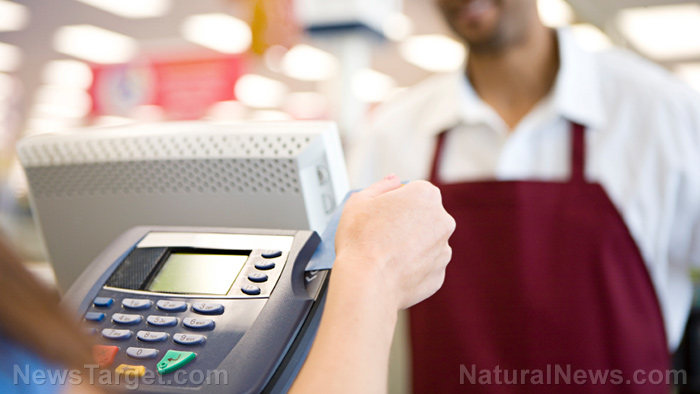
Payments giant Mastercard paved the way for this new system, launching a biometrics payment program for retailers. Users checking out goods at the cashier will need to scan their face or palm to authenticate payment. Their biometric data can then be matched to a bank account stored on file, automatically deducting the purchase amount once the transaction is confirmed.
A spokesman for the company defended the new system, saying: "No more fumbling for your phone or hunting for your wallet when you have your hands full. The trusted technology that uses your face or fingerprint to unlock your phone can now be used to help consumers speed through the checkout." (Related: Mastercard rolls out payment system that uses FACIAL RECOGNITION technology.)
The biometrics payment program was piloted in five branches of the St. Marche supermarket chain, all in the Brazilian state of Sao Paulo. Mastercard partnered with local Brazilian startup Payface to make the system a reality. According to the New York-based financial services firm, more trials in Asia and the Middle East are planned – with a view to a global rollout later in 2022.
Mastercard Cyber and Intelligence Solutions President Ajay Bhalla said: "Our goal with the new program is to make shopping a great experience for consumers and merchants alike, providing the best of both security and convenience. The way we pay needs to keep pace with the way we live, work and do business, offering choice to consumers with the highest levels of security."
"When the pandemic happened, we saw that everybody went digital and consumers embraced new technologies. Consumers all over the world actually asked for that [solution] for their shopping [and] their retail experiences," he added. "All the research that we've done has told us that consumers love biometrics."
Biometrics payment is not without its risks
Despite its purported convenience, biometrics payment is not without its risks – with the Daily Expose elaborating on some of these.
"All the digital ID and data-gathering systems are vulnerable to security breaches. Because of the potential for cyber breaches, hacks in the future could [be] even larger and put entire systems at risk," the conservative outlet said. It also cited the 2017 Equifax breach, where the personal data of more than 150 million people in three countries was compromised.
Aside from potential security breaches, the Daily Expose also cited the possible influence of algorithms and artificial intelligence in biometrics payment systems.
"The rise of artificial intelligence also means that as data from digital ID systems is gathered, algorithms are being built that may have a major impact on people. These systems … are neither transparent in operation nor clear even as to who or what is building them, and for what purposes," it said.
"It may be, in the future, that people will find they no longer have consumer options such as low-cost bank loans due to the decisions of algorithms whose working are not transparent to the public."
Lawyer Suzie Miles also warned of additional risks that come with using biometrics as a payment system.
"Mastercard [itself has] recognized the data and security concerns that come with the use of biometrics. A password can be changed, your smile and wave cannot. If biometric data is hacked, then the risk of fraudulent activity could be considerably higher than current payment methods," she told the Guardian.
She also expressed fear that the facial recognition systems will collect and store data that can be used to monitor and track people.
"While it seems [that] Mastercard [has] taken steps to protect and encrypt this data, as biometric payments become more commonplace, the use of such data is likely to evolve. It will inevitably become harder to protect individuals' right to privacy."
Watch the video below about Mastercard wanting to track users based on their heartbeat and vein patterns.
This video is from thedeadgene channel on Brighteon.com.
More related stories:
Amazon now requiring marketplace sellers to submit video for a facial recognition database.
Sources include:
Please contact us for more information.























